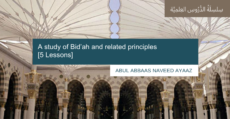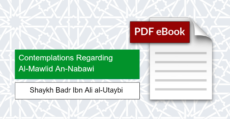Reference: http://www.alfawzan.af.org.sa/node/14904
At-Ta’ziyyah (condolences) is to offer words of comfort to a person who has been afflicted with the death of a relative, and to relieve his worry and sadness. This is done by supplicating for him with the narrated supplication:
أحسن الله عزاءك، وجبر الله مصيبتك، وغفر لميتك
May Allah make better your solace, ease your affliction and forgive your deceased.
This can be done in any place where you meet the person who has been afflicted by the death of his relative, whether it is in the Masjid, office, workplace; before the burial or after it.
It should be without specifying a time or a place, and without preparing food – except the food that is prepared for the family of the deceased. Food is prepared by others for them according to their need, because they are preoccupied with the calamity of death – as is mentioned in the Hadeeth [1].
This is the Sunnah with regards to offering condolences; it is done without postponing daily work, specifying particular days apart from the actual days of the calamity, and without specifying a place [to receive condolences].
The Sunnah [of offering condolences] has had many innovated and over burdening acts associated with it:
1. Announcing a particular place or time for condolences to be received.
2. The relatives of the deceased prepare a place for people to gather and therefore they have to furnish it, offer coffee and perfume etc… This carries on with more and more people arriving and being offered the above throughout the ‘condolence period’.
3. Postponing work and chores throughout the days of receiving condolences, as a show of sadness for the deceased.
4. Having to prepare enough food for all the people who gather, every night during the condolences. The cost of this is placed on the relatives or friends of the deceased not necessarily on the family of the deceased. Often this will include sacrificing an animal and preparing different types of food.
5. Burdening the relatives of the deceased due to them having to receive visitors offering condolences, serving them and preparing a place for them
6. All of the above is not restricted to men gathering with each other, even women are now gathering – no less than the men. All of this is placed upon the family of the deceased along with their sadness and grief.
All these burdensome affairs bring no benefit to the living nor the deceased. Rather they have become like collars of iron [burdening the people], for which there is no proof from Allaah.
The situation has become much worse now, with people building places to receive condolences at the graveyard. This is a clear act of misguidance. The Mufti of the Saudi Arabic issued a fatwa in his time, ordering for these buildings to be demolished; similarly the Committee of Senior scholars issued verdicts regarding this.
Despite all of this, some people have now started to build such buildings once more.
The virtuous companion Jareer ibn Abdillah al-Bajalee (may Allaah be pleased with him) said,
We used to consider gathering with the family of the deceased and preparing food to be from Niyaahah (Lamenting from the actions of Jaahiliyyah). [2]
Niyaahah is from the forbidden actions of Jaahiliyyah. This narration which has been narrated by Jareer and the other companions contains a number of affairs:
Firstly: Congregating with the relatives of the deceased – which is what people do nowadays as we described – if from the actions of Jaahiliyyah as mentioned in this narration.
Secondly: Preparing food for the relatives of the deceased – more than they themselves need – as mentioned in the Hadeeth.
Thirdly: The above actions are from Jaahiliyyah, the Muslims should pay attention to this.
May Allaah give everybody the Tawfeeq to implement the Sunnah in this, and in other matters.
Allaah knows best.
Footnotes
[1] Referring to the following Hadeeth: ‘When Ja`far b. Abi Tâlib died, the Prophet (sal Allaahu alayhi wa sallam) said:
Prepare food for the family of Ja`far, they have something that is keeping them occupied (i.e the death of Ja’far)
Collected by at-Tirmidhee & Abu Dawood
[2] Narrated by Jareer Ibn Abdillah; Collected by Ibn Maajah
االتعزية وما اكتنفها من مبالغات
المرجع: http://www.alfawzan.af.org.sa/node/14904
التعزية: هي مواساة المصاب بموت قريب له وتخيف الحزن عليه وذلك بالدعاء له بما ورد وهو أن يقال:
أحسن الله عزاءك، وجبر الله مصيبتك، وغفر لميتك
في أي مكان يحصل فيه لقاء المصاب في المسجد أو في المكتب أو في المتجر قبل الدفن أو بعده من غير تعيين وقت ولا مكان ولا إعداد طعام سوى ما يصنع لأهل الميت بقدر ما يكفيهم لأنهم مشغلون بمصيبتهم عن إعداد الطعام لأنفسهم كما جاء في الحديث – هذه هي السنة في العزاء ومن غير تعطيل أعمال ولا تخصيص أيام سوى أيام المصيبة ولا مكان
– هذه هي السنة في العزاء ومن غير تعطيل أعمال ولا تخصيص أيام سوى أيام المصيبة ولا مكان
وقد اكتنف هذه السنة أمور محدثة ومكلفة للمصاب وللناس وهي كما يلي:
1. إعلان مكان العزاء وزمانه.
2. أن يهيئ أهل الميت مكانا للاجتماع بما يتطلبه من أثاث واستقبال وقهوة وطيب يتكرر تقديمهما لوفود المعزين طول مدة العزاء.
3. تعطيل الأعمال في أيام العزاء إشعارا بالحزن على الميت.
4. إعداد موائد الطعام التي تكفى المجتمعين كل ليلة من ليالي العزاء يتحمل نفقاتها أقارب الميت غير أهله أو أصدقاؤهم بما تكلفه من ذبائح وأنواع الأطعمة.
5. إتعاب أهل الميت باستقبال المعزين والقيام بخدمتهم وتهيئة المكان لهم
6. ولا يقتصر ذلك على اجتماع الرجال فقط بل يكون هناك اجتماع للنساء قد لا يقل عن اجتماع الرجال. حتى صار أهل الميت مع حزنهم عليه يتحملون هذه الأعباء.
وهذه الأمور المكلفة لا ترجع بفائدة لا للحي ولا للميت. بل هي صار وأغلال ما أنزل الله بها من سلطان.
بل زاد الأمر بأن تبنى أماكن للعزاء في المقابر وهي ظاهرة منكرة قد أفتى الشيخ محمد بن إبراهيم مفتي البلاد السعودية في وقته بهدمها وصدرت في تلك قرارات من هيئة كبار العلماء.
ورغم هذا يتفلت بعض الناس بإقامة تلك المباني مرة بعد أخرى. وقد قال الصحابي الجليل: جرير بن عبدالله البجلي رضي الله عنه: (كنا نعد الاجتماع إلى أهل الميت وصنعة الطعام من النياحة)
والنياحة محرمة وهي من أمور الجاهلية – فتضمن هذا الأثر الذي يرويه جرير عن الصحابة رضي الله عنهم مسائل: الأولى: الاجتماع إلى أهل الميت وهو ما يعمل الآن كما وصفنا وهو من أمور الجاهلية كما في هذا الأثر. الثانية: صنعة الطعام الزائد عن حاجة أهل الميت في أنفسهم والذي جاء به الحديث. الثالثة: أن هذه الأمور من النياحة المحرمة فلينتبه المسلمون لذلك. وفق الله الجميع للعمل بالسنة في هذا وفي غيره. والله أعلم





